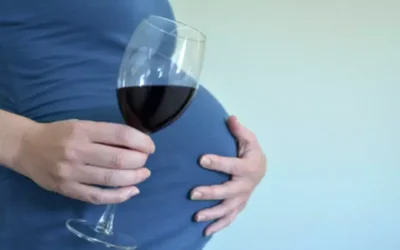Content
Avoiding the relapse stage takes great effort and willpower, making sure you remain committed throughout your recovery and into maintenance can make it less likely. Sometimes the circumstances that lead an individual into relapse are out of their control and sometimes they may just get caught in the wrong moments. Regardless of how you may have entered the relapse stage, you know now that you are capable of recovery and returning to the maintenance stage is entirely possible for you. You may become more depressed, more anxious, or start losing sleep. You may start to feel sick from heavy drinking, but enjoy its effects too much to care. Many drinkers at this stage are more likely to drink and drive or experience legal troubles as a result of their drinking.

Typically, it’s because family, friends, an employer or perhaps a court has forced them into treatment. Unfortunately, treatment is often ineffective at this stage because individuals simply don’t believe they have a drinking problem. It’s unlikely that a person in this stage would even be interested in information about alcoholism. As a person with a high tolerance continues to drink heavily, their body adapts to the presence of alcohol. After ongoing heavy use, the body may develop a physical dependence.
Coping with alcohol withdrawal symptoms safely
Preparation can include emotional and mental preparation as well as researching different treatment options. In the preparation stage, it is important to evaluate which options are accessible to you and what your specific needs are. During preparation, you may also plan how you will communicate your decision to loved ones and your place of work if you plan on informing them. This step teaches people in recovery to manage stress without substances, and begin to live an abstinence-based lifestyle. Although they’re not thinking clearly and their thoughts, behaviors, and emotions aren’t well controlled, recovering individuals begin to become hopeful that recovery could work.

In cases where a person has become physically dependent on alcohol, these symptoms can be life-threatening if not overseen by a trained medical professional. People often abuse alcohol to ease the symptoms of an undiagnosed mental health problem, such as depression or anxiety. As you seek help for alcohol addiction, it’s also important to get treatment for any other psychological issues you’re experiencing. Your best chance of recovery is by getting combined mental health and addiction treatment from the same treatment provider or team. Congratulations, the worst is officially behind you at this stage. While recovery is a lifelong process that never ends, your physical addiction should subside considerably.
Stage 1 (Mild)
Part of relapse prevention involves rehearsing these situations and developing healthy exit strategies. During emotional relapse, individuals are not thinking about using. They remember their last relapse and they don’t want to repeat it. But their emotions and behaviors are setting them up for relapse down the road. Because clients are not consciously thinking about using during this stage, denial is a big part of emotional relapse. By the time most individuals seek help, they have already tried to quit on their own and they are looking for a better solution.
- That is why alcohol detox and alcohol withdrawal treatment is administered by medical professionals.
- Continually keeping yourself busy distracts your mind from the passing of time.
- To move forward, they must reflect deeply on what these behaviors are, when they occur, and why they happen the way they do.
- For this reason, medical and psychiatric supervision of the alcohol detox process is necessary.
For individuals who experience delirium tremens (DTs)—these symptoms usually appear hours after heavy drinking has ceased. They typically continue for 3-4 days though they may last up to 8 days. As an alcohol-dependent person who had felt terribly out of control of her own life for many, many years, the first few weeks and months of living as a non-drinker were a breath of fresh air. The joy of waking up each day and not immediately running through a mental checklist of who I had insulted/let down/hurt the night before was beyond compare.
Stages of Alcoholism: Early, Middle, & End-Stage Alcoholism
This may mean making major changes to your social life, such as finding new things to do with your old drinking buddies—or even giving up those friends and finding new ones. The first step is often to consult your primary care stages of getting sober doctor or GP. Your doctor can evaluate your drinking patterns, diagnose any co-occurring disorders, assess your overall health, and offer treatment referrals. They may even be able to prescribe medication to help you quit.

Which option is best for you depends on how much you’ve been drinking, how long you’ve had a problem, the stability of your living situation, and other health issues you may have. Terence Gorski developed the six stages of recovery, called the CENAPS model of relapse prevention. He was an internationally-recognized advocate and expert on substance use and recovery. The early recovery stage is all about working on changing thoughts, particularly addictive thoughts.
The best thing you can do for yourself is to keep a positive attitude going forward. Treatment isn’t always easy and there are many things you will be learning about yourself, your capabilities, and how to cope with and manage your addiction. This is what rehab is all about—giving you the tools to live your life clean and sober. You enroll or get admitted to the treatment facility and undergo a comprehensive interview and evaluation. Then, a personalized treatment plan will be created for you and you begin the treatment process. The Blackberry Center is a 64-bed behavioral hospital in St. Cloud, Florida.
It’s a disease—an altering of the brain that controls a person’s motivation and ability to make healthy choices. Once it takes hold, it can be hard to shake loose—without the right help. One of the most beneficial instances that can occur here is your blood sugar might finally normalize. Due to the diuretic effect that alcohol has on an individual’s body, it’s natural to feel dehydrated.
